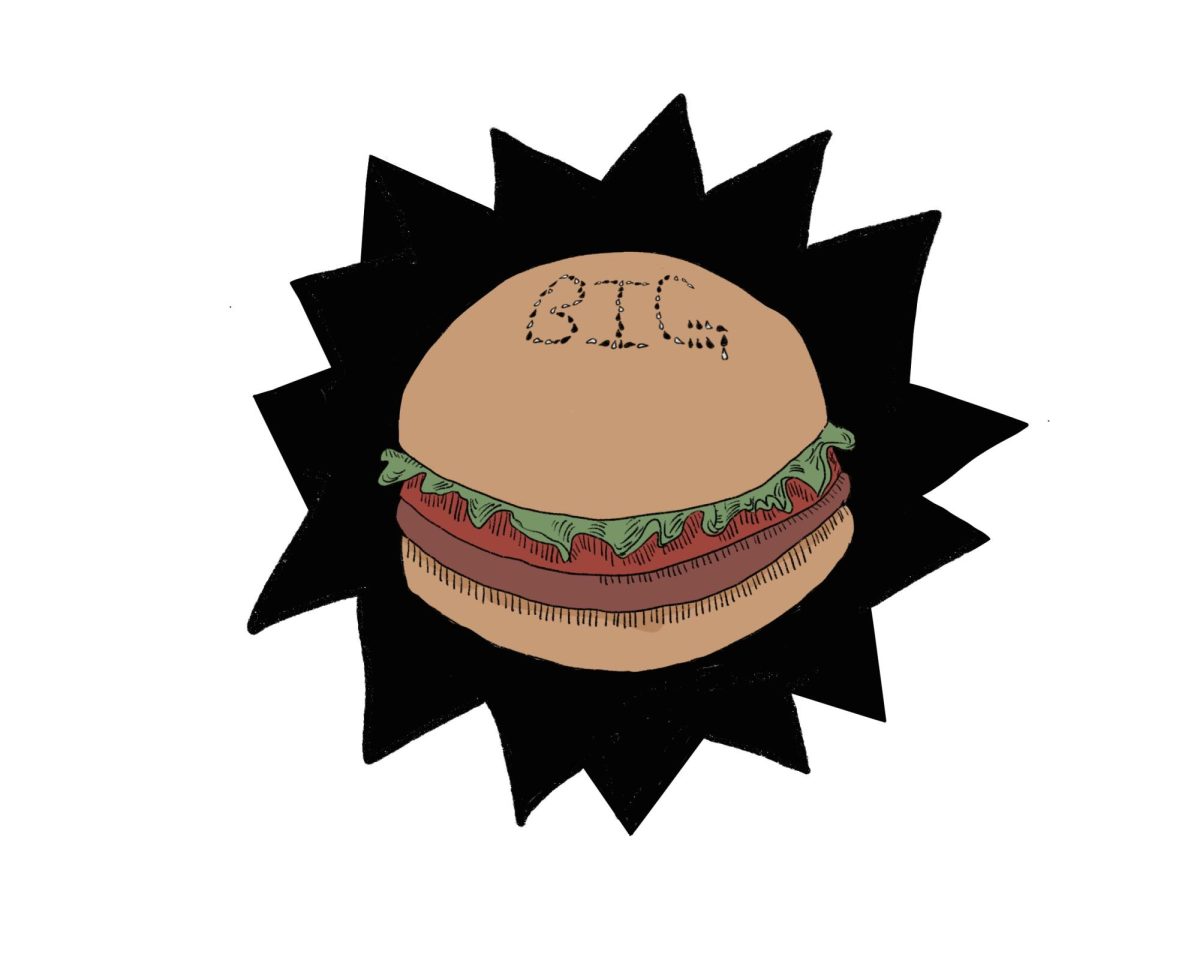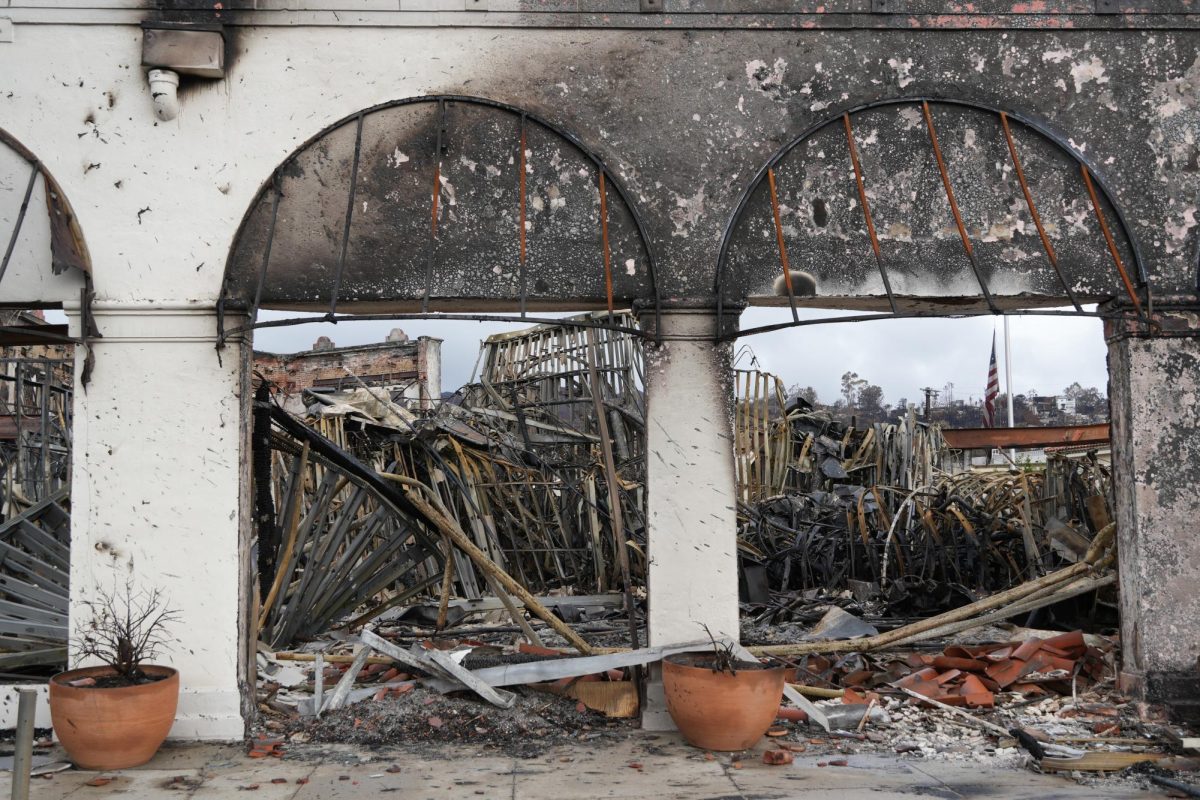A substantial number of students say they do not fully trust the effectiveness of the Honor Code, according to a poll conducted by the UltraViolet and follow-up interviews with students, faculty, and administration, though most call the school’s emphasis on honor fundamental value.
Responding to the poll and her own recent discussions with students, Head of School Barbara Wagner said that further education about the policy is crucial.
“I think if we can improve the education and the communication about the way the Honor Code works, then we need to do that,” Wagner said.
The poll was given to ninth through twelfth graders in advisory, and 237 students responded. Students ranked both their own adherence to the Honor Code and their trust in it on a 1-5 scale. They also chose from four possible reasons for not fully trusting the Honor Code and said whether they had ever reported a violation.
TRUST/EFFECTIVENESS
Overall, the most popular trust rating was a 4, though a significant number of students in all grades answered 2 or 3 (see graph page 12). In terms of personal adherence, 49% of all students rated themselves a 4 and 44% a 5.
Some interviewed students said results probably reflected instances where students let little things slide, such as talking about a test afterward or sharing homework answers, rather than cheating on a test or paper.
This fit with poll results. Of students who rated their trust less than 5, 73% said a reason for that lack of trust was that students didn’t take the code seriously enough.
Emily ’10 said she wouldn’t rank her trust a 5.
“For the most part, I think the Honor Code works really well. However, on a day to day basis, violations are much more common than we’d like to think. Giving friends an answer to a homework question and talking about tests occurs often,” Emily said.
Ashley ’09 said that while she hardly ever sees cheating on in-class tests, on take-home assignments, she does see it.
“Copying homework I see a lot. I’ve seen people do take-home tests together. I just feel like people don’t actually think about it when it comes time to, I guess, advance themselves,” Ashley said.
Other students said that they rarely see Honor Code violations, even small ones.
“I don’t really think about it very often because I don’t see any violations,” said Ryanne ’11.
Julianne ’09, on the other hand, said that she often sees students not taking the Honor Code seriously.
“I feel like in some circles it’s almost treated as a joke – in many, actually,” Julianne said.
One student “Holly,” who asked to remain anonymous, said that she has cheated on a test.
“Sometimes you’re in a hard test and you lift your head for one second and you happen to see an answer on someone else’s paper, or sometimes you look purposefully…I’ve done it in the past,” Holly said.
Wagner said that while she has no magic solutions for hasty choices that violate the Honor Code, she feels that open discussion could encourage girls to make the right choices. Her own sense is that students do take the code seriously, she said.
Upper School Director Laura Hotchkiss acknowledged that some dissatisfaction with the Honor Code is difficult to avoid.
“The reality is it’s hard to uphold a standard of perfection. There is a level of cynicism and skepticism,” Hotchkiss said.
History instructor Catherine Atwell said that gossip can negatively impact the perceived effectiveness of the Honor Code.
“When examples of dishonorable behavior occur, discussion underground undermines students’ respect for the Honor Code,” Atwell said.
49% of all students ranked themselves a 4 on how well they follow the Honor Code. 44% gave themselves a 5, and 7% a 3, 2, or 1.
Ryanne said 3’s and 4’s might reflect violations like talking about how hard or easy a test was in front of someone who hasn’t taken it. Students worried that they may have violated the Honor Code unintentionally could also report a 3 or 4, she said.
Almost all students interviewed said that the reason violations occur is because of a pressure to achieve perfection.
Still, “stress,” said history instructor Martha Schuur, is not necessarily the reason.
“I think at this school, it’s all about ill-preparedness and panic…Unfortunately, there’s an assumption you can’t come to a teacher and say, ‘I totally forgot,’” Schuur said.
Atwell agreed, but said that perception is false.
“Teachers would feel better about students who own up to their limitations,” Atwell said. “It shows a high degree of integrity.”
ENFORCEMENT
Julianne said the Honor Code would be more effective if violators were caught more regularly or punished more stringently.
“We’ve never really seen a harsh punishment for breaking it, or people have cheated in the past and they haven’t gotten caught,” Julianne said.
Still, Julianne and others also said that having teachers breathing down students’ necks during tests might not help.
Schuur said she sees this issue.
“It’s a tough thing for a teacher. Unless you see a student pulling out their notes during a test, you can’t jump to accusing without evidence, because that’s saying ‘I don’t trust you’ – and we’re a community built on trust,” Schuur said.
Spanish instructor Eric Reinholtz said that harsher punishments for violators might also undermine the intentions of the Honor Code, as it is meant to teach students how to live honorable lives but also give them room to learn from mistakes.
“In the best possible world, people would be punished. But the idea is to make them honorable. The institution doesn’t want to abandon a violator… but they’ll watch her more closely,” Reinholtz said.
Wagner said the school has, to the best of its ability, followed up every Honor Code case that has ever been reported. If there are cases out there not being reported, Wagner said, that presents an issue in terms of enforcement.
“It’s really hard to act on something if you don’t know about it,” Wagner said.
Hotchkiss agreed.
“There is definitely criticism of the administration for not monitoring Honor Code violations, but students don’t report [either]. If they want the adults to report, we all have to engage,” she said.
“TATTLING”
14% of students in grades 9-12 said that they have reported Honor Code violations. Also, 50% of students chose student discomfort in reporting violations as a reason for their less than absolute trust in the Honor Code.
Ari ’11 said that this is a result of loyalty.
“Nobody wants to see her friend get in trouble, even if she did something that’s obviously wrong,” Ari said.
One anonymous student, “Rita,” said she once made the difficult choice to report a close friend for violating the Honor Code. The first teacher that Rita talked to told her to inform Hotchkiss because some harsh punishment, even expulsion, might be necessary.
“I was really scared, because I felt like I didn’t think she should have gotten expelled for it,” Rita said. In the end, the violator was not expelled, and Rita is not sure what the punishment was.
Wagner said that Rita’s fears are exactly the reason why the policy is left vague regarding whether or not a student reported violation will lead to expulsion (see “Clarifying the code,” here).
The students who created the Honor Code “wanted the flexibility so students could report things and not worry about ‘if I report this I’m going to be the person who has this student expelled,’” Wagner said.
EDUCATION
Emily said that if students knew more about the Honor Code, it might be more effective.
“I think people are misinformed of what defines a violation,” she said.
Talia ’09 said that the policy should be more clearly defined for the student body.
“I honestly do not know what it is. Make it simple, an easy understanding where everyone can see it,” she said.
Wagner agreed that, for many reasons, education is critical.
“I suspect some of the concerns about transparency for individual cases would be less dramatic, or there would be less of a need, if everybody understood the process better,” Wagner said.
Still, full disclosure isn’t likely.
“There are situations that come up where I suspect students would like greater transparency,” Wagner said. “I think we don’t feel we can provide it in terms of protecting an individual student and her rights.”
Hotchkiss said that it may be time to review the code itself.
“It’s probably time to look at it again, maybe next year. We will re-commit to those values,” she said.
Emily said that upholding the Honor Code boils down to personal responsibility.
“Ultimately it rests with the individual – if they’re willing to change their habits or report violations,” Emily said.
Reinholtz and others said that though students aren’t perfect, the Honor Code is a valuable ideal.
“The students here have more integrity than any place I’ve ever worked,” Reinholtz said. “The Honor Code actually means something.”






